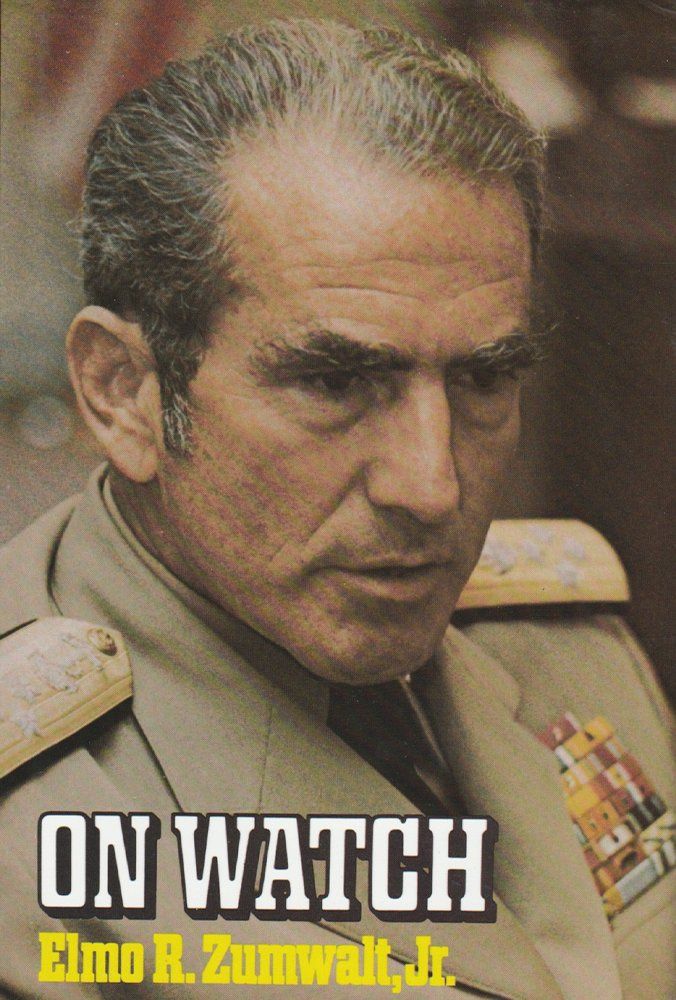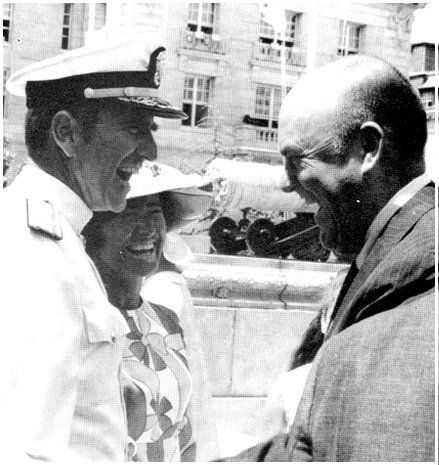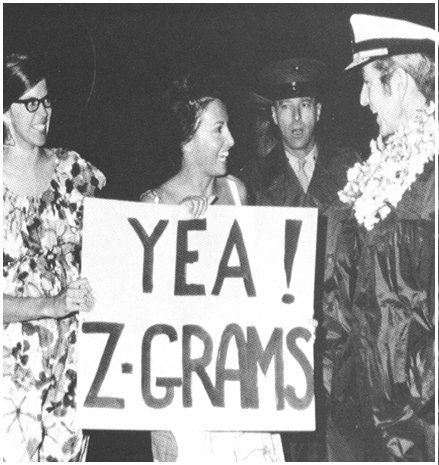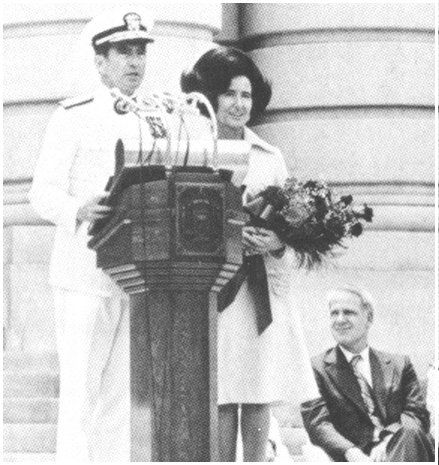BOOKS On Watch
Admiral Elmo Zumwalt, Jr. was the Chief of Naval Operations from 1970 to '74 as the nation pulsed with social discord and a coalescing pall of despair.
Other Books on the Zumwalt Family:
The Admiral had been retired for two years when On Watch
hit the shelves back in 1976. That places the book itself at a distance of some 45 years from the America of today. But what makes the book such a rich and fascinating read is the nature of what so dominated our country then in contrast to what has so dominated our country in recent years. Discord is now a gushing wound.
But then, discord has been the harvest of an array of cultivated crops planted in the furrows of America's social and political fault lines. During his tenure at the helm of Naval Ops, Admiral Zumwalt had to cope with the stormy inroads of these forces as well as the USSR in all its unrelenting ploys (and efforts) to gain and keep a geo-political edge. He never once had the wind at his back.
What the Admiral had both at his back and unendingly in his face were many of Richard Nixon's senior "advice givers" who aimed to temper the dire implications of the US falling (by choice) even more menacingly behind the USSR. The first and worst of them was Henry Kissinger. He moved to get Zumwalt fired but had no luck so kept suffocating what the CNO was saying. It seemed to work.
In the early days of his tenure, the Admiral wrote that "Kissinger does not agree with the President that the American people can be turned around. K. feels the U.S. has passed its historic high point. He believes his job is to get the best deal he can from the Soviets because the historical forces favor them." And so, Henry Kissinger was ready and willing and eager to capitulate to the USSR.
But President Nixon did not follow the Kissinger game plan that K. had schemed so hard to arrange. The efforts of CNO Zumwalt did have a telling effect.
As CNO, Zumwalt inherited a Navy that was deeply demoralized and had lost the level of support in Congress to rebuild
the fleet, do what desperately needed to be done to restore
morale, and move with dispatch to revamp
the historical norms that were ever more at odds with social trends in American life. On the surface, the morass of adversities he faced seemed impossible to resolve.
By 1970, the Navy failed to retain more than 9.5% of officers and sailors when for decades the rate had been close to 35%. This was a direct result of the Navy being so blindly out of step with the "temper of the times" in how leaders led and in what the most skilled and motivated sailors were likely to respond to as reasons to re-up. But Zumwalt had just the right instincts to attack this.
In sync with a number of study groups, he set about to discern and change what was so broadly self-defeating in the make-up and workings of the Navy.
Based on the findings of these groups and reviews of their findings by scores of front-line leaders, the "modernizers" cast off to save the Navy from itself.
A calibrated series of so-called "Z-Grams" was issued by Zumwalt that laid out in detail what to stop doing, what to start doing, and why. These were Naval Operations Orders (NAVOPS). He issued 121 Z-Grams
during his 4-year tenure as CNO, more than half coming by the end 1970. Two results of great note were the rise from Captain to flag rank of the first black man and first woman.
The fleet had been gutted over the 4 years that Zumwalt was CNO despite all he did to shore up the Navy's relationship with Congress and persuade Nixon that America's defense was improbable if the Navy did not reverse course and rebuild at flank speed. From 976 ships in 1970, the fleet had sunk to 508 ships in 1974 with more damage in the offing. This is what Zumwalt strove to prevent.
Admiral Elmo Zumwalt, Jr. was remarkable as both a leader and a person. He's what so many Americans today are "on watch" to find again. Not likely.









